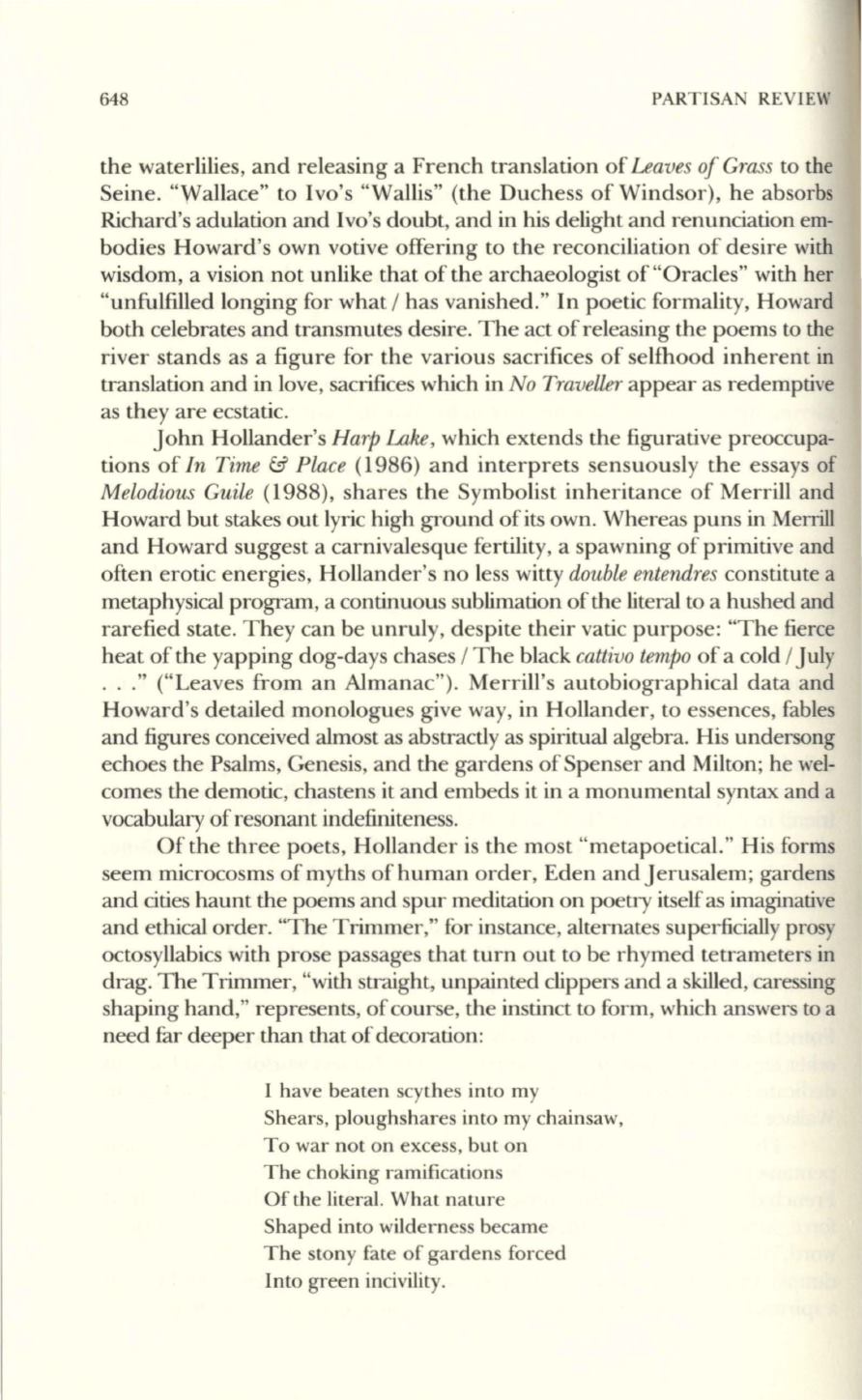
648
PARTISAN REVIEW
the waterlilies, and releasing a French translation of
Leaves of Grass
to the
Seine. "Wallace" to Ivo's "Wallis" (the Duchess of Windsor), he absorbs
Richard's adulation and Ivo's doubt, and in his delight and renunciation em–
bodies Howard's own votive offering to the reconciliation of desire with
wisdom, a vision not unlike that of the archaeologist of "Oracles" with her
"unfulfilled longing for what / has vanished." In poetic formality, Howard
both celebrates and transmute desire. The act of releasing the poems to the
river stands as a figure for the various sacrifices of selfhood inherent in
translation and in love, sacrifices which in
No Traveller
appear as redemptive
as they are ecstatic.
John Hollander's
Harp Lake,
which extends the figurative preoccupa–
tions of
In Time
&
Place
(1986) and interprets sensuously the essays of
Melodious Guile
(1988), shares the Symbolist inheritance of Merrill and
Howard but stakes out lyric high ground of its own. Whereas puns in Merrill
and Howard suggest a carnivalesque fertility, a spawning of primitive and
often erotic energies, Hollander's no less witty
double entendres
constitute a
metaphysical program, a continuous sublimation of the literal to a hushed and
rarefied state. They can be unruly, despite their vatic purpose: "The fierce
heat of the yapping dog-days chases / The black
cattivo tempo
of a cold / July
..." ("Leaves from an Almanac"). Merrill's autobiographical data and
Howard's detailed monologues give way, in Hollander, to essences, fables
and figures conceived almost as abstractly as spiritual algebra. His undersong
echoes the Psalms, Genesis, and the gardens of Spenser and Milton; he wel–
comes the demotic, chastens it and embeds it in a monumental syntax and a
vocabulary of resonant indefiniteness.
Of the three poets, Hollander is the most "metapoetical." His forms
seem microcosms of myths of human order, Eden and Jerusalem; gardens
and cities haunt the poems and spur meditation on poetry itself as imaginative
and ethical order. "The Trimmer," for instance, alternates superficially prosy
octosyllabics with prose passages that turn out to be rhymed tetrameters in
drag. The Trimmer, "with straight, unpainted clippers and a skilled, caressing
shaping hand," represents, of course, the instinct to form, which answers to a
need fur deeper than that of decoration :
I have beaten scythes into my
Shears, ploughshares into my chainsaw,
To war not on excess, but on
The choking ramifications
Of the literal. What nature
Shaped into wilderness became
The stony fate of gardens forced
Into green incivility.


